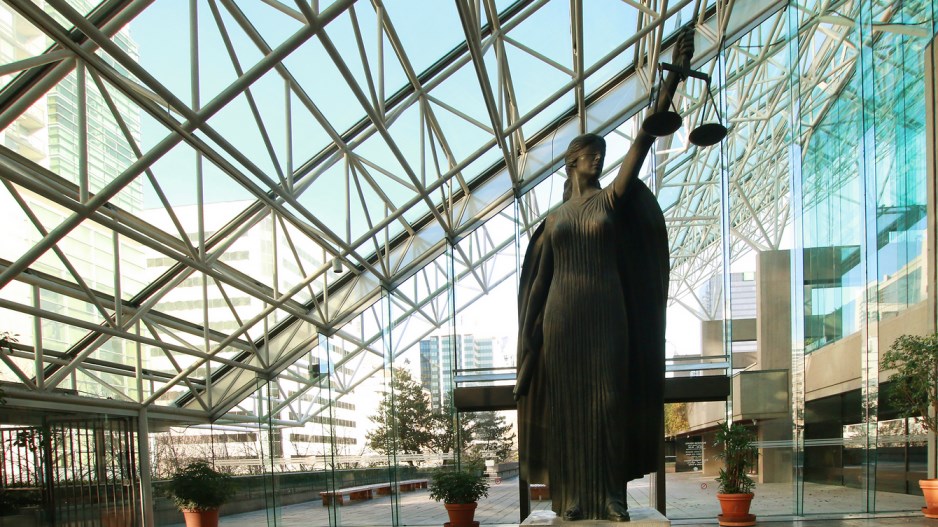The COVID-19 pandemic and restrictions on court activities have highlighted the B.C. courts’ deficient technological capabilities, B.C. Supreme Court Chief Justice Christopher Hinkson said April 30.
“The court has long been aware of the need to upgrade court technology in order to increase the court’s ability to provide remote and online access to justice,” Hinkson said in a statement. “Over the years, numerous and repeated requests have been made to government to make the necessary and appropriate investments in this area.”
It was a rare foray of a judge into the political arena in a system where the executive, legislative and judicial branches of government operate as independent but equal entities.
And, Ministry of Attorney General David Eby is in agreement with Hinkson.
“It’s going to be a challenging process,” Eby said. “He’s right. Governments of all stripes have not prioritized funding of technology for the courts.”
Hinkson announced suspension of the court’s regular activities March 18 to protect the health and safety of court users and to help contain COVID-19’s spread.
That suspension was extended April 20 until May 29.
“I am acutely aware of the tremendous hardships that the suspension of regular operations causes for court users, most notably accused persons and litigants,” Hinkson said in the statement.
Hinkson had directed the court to focus on urgent matters and essential ones such as bail, detention reviews, family law applications, protection orders, emergency health care orders and preservation of property among others.
Hinkson said the courts “have worked tirelessly to expand the types of hearings that can proceed including developing a process for single-issue applications to be dealt with by telephone conferences and to expand the use of applications by written submissions.”
Hinkson said the court continues to conduct a variety of pre-trial conferences in criminal, civil and family cases and is exploring options to provide more services without jeopardizing the health and well-being of court users. That includes use of web-based videoconferencing.
The judge said the court has been working with the Ministry of Attorney General to develop a digital strategy for the courts with a three-four-year timeline for full adoption.
“COVID-19 has certainly highlighted the urgent and pressing need to compress that timeline,” Hinkson said. “To date, however, requests for the financial investments necessary to make the strategy a reality have gone unanswered.”
Again, Eby agreed: “COVID-19 has made the case for improvements.”
Hinkson said the court faces many challenges in adapting processes to become more efficient around issues such as electronic filing and tools such as videoconferencing technology and evidence presentation systems.
“The lack of sufficient and effective tools has been hampering the court’s ability to adapt its processes,” Hinkson said. “Prior to and since the outbreak of the pandemic, the Court has been investigating new and different ways to employ technology to conduct hearings, receive evidence and documents and to facilitate access to the court’s proceedings for the public and media.
“The COVID-19 pandemic accelerated the court’s efforts in this area, but the work has been ongoing for some time.”
Eby said Victoria is working with Hinkson, B.C. Court of Appeal Chief Justice Robert Bauman and Provincial Court Chief Judge Melissa Gillespie to make changes to the system traditionally run based on paper filings and in-person appearances.
Trial Lawyers Association of B.C. president John Rice said the opportunity provided by the pandemic to make technological changes and reforms in the legal system shouldn’t be squandered.
He said the responsibility for infrastructure changes sits with Victoria, that judges “are ready, willing and able” to embrace new tools.
Rice said societal crises like COVID-19 have a way of shocking the status quo and forcing action.
“This is an opportunity we can’t afford to get wrong,” Rice said, “ especially if there is a second wave of COVID or other pandemic once again restricting physical access to our courthouses.”
Rice called the situation a chance to “drastically improve access to justice in British Columbia.
@jhainswo




